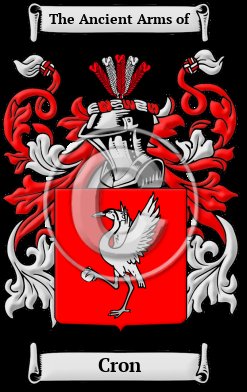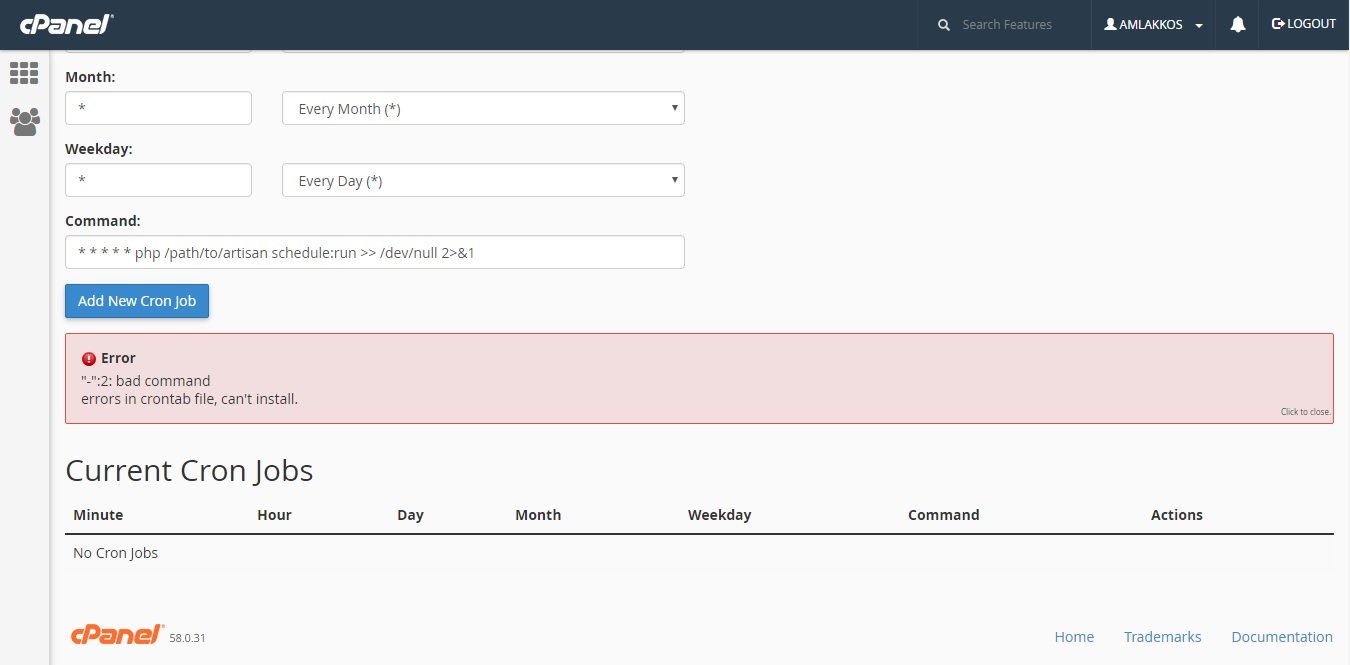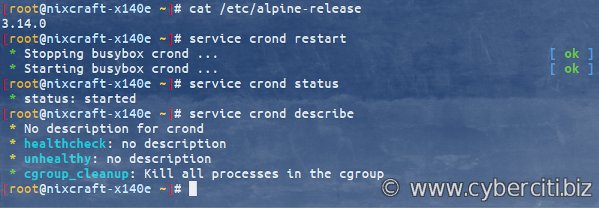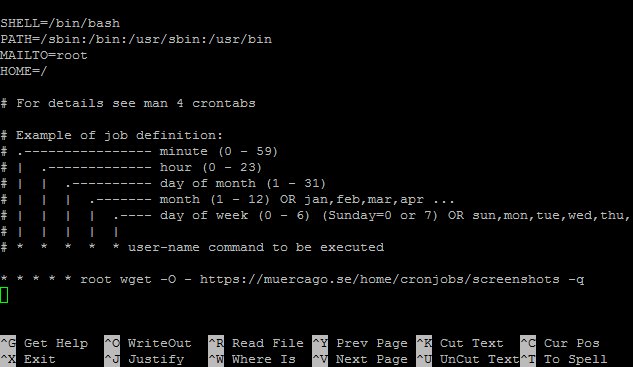Looking to understand the meaning of “cron”? Well, you’re in the right place! In simple terms, cron is a time-based job scheduler in Unix-like operating systems. It allows you to schedule and automate tasks to run at specific intervals, be it daily, weekly, or even on specific dates. Whether you’re a tech enthusiast or a busy professional seeking to optimize your workflow, grasping the concept of cron is essential. So, let’s dive in and unravel the world of cron, exploring its functionality, applications, and how it can benefit you in managing your tasks efficiently.
Cron Meaning: Understanding the Basics of Cron Jobs
When it comes to efficiently managing tasks on a server, cron jobs are an essential tool. But what exactly does “cron” mean? In this article, we’ll explore the meaning of cron and delve into its various aspects. We’ll discuss the purpose of cron jobs, how they work, common use cases, and provide practical examples to help you leverage this powerful scheduling utility.
What is Cron?
Cron, short for “chronograph,” is a time-based job scheduler in Unix-like operating systems. It enables users to schedule commands or scripts to run automatically at specified time intervals, such as daily, weekly, monthly, or even down to the minute. Cron jobs are often used for automating repetitive tasks, managing system maintenance, and triggering specific actions at predefined intervals.
Originally created in the 1970s, cron has stood the test of time and remains a fundamental component of many operating systems, including Linux, macOS, and BSD variants. While there are alternatives available, cron’s simplicity and widespread support make it a popular choice for scheduling tasks.
How Does Cron Work?
At its core, cron relies on a configuration file called a “crontab” (short for “cron table”) to define the scheduling of tasks. Each user on a system typically has their own crontab file, which they can modify to specify the commands they want cron to execute on their behalf.
The crontab file follows a specific format, consisting of five fields separated by spaces or tabs. These fields represent the time intervals when a command should be executed:
- Minute: A value between 0 and 59 that specifies the minute at which the command should run.
- Hour: A value between 0 and 23 that indicates the hour of the day when the command should execute.
- Day of the month: A value between 1 and 31 that determines the day of the month when the command should run.
- Month: A value between 1 and 12 or the corresponding names (e.g., “jan” for January) that represents the month when the command should execute.
- Day of the week: A value between 0 and 7 or the corresponding names (e.g., “sun” for Sunday) that specifies the day of the week when the command should run. Both 0 and 7 represent Sunday.
Using these fields, you can create a wide range of scheduling configurations. For instance, specifying “*” in the minute field means the command will run every minute, while “0 12 * * 1” would execute the command at 12:00 PM every Monday.
Once the crontab file is set up with the desired scheduling, cron continuously checks the crontab files for any changes. If a modification is detected, cron reloads the updated crontab files, ensuring that the updated schedules take effect immediately. When a scheduled time matches the system time, cron executes the corresponding command or script.
Common Use Cases for Cron Jobs
Cron jobs offer a wide range of possibilities for automating routine tasks. Here are some common use cases where cron jobs excel:
1. Automated Backups
Regularly backing up important files or databases is crucial for data protection. Cron jobs can be used to schedule automatic backups at specific times, reducing the risk of data loss.
For example, you could schedule a cron job to run a backup script every night, creating a snapshot of your website files or database. By automating this process, you ensure that critical data is regularly stored in a safe location.
2. System Maintenance
Cron jobs are immensely helpful in performing routine system maintenance tasks. For instance, you can schedule tasks to update software packages, clean up temporary files, or optimize databases at regular intervals.
By automating maintenance tasks, you can streamline system performance and prevent common issues caused by neglected upkeep. Cron jobs make it easy to implement a regular maintenance routine without intervention.
3. Job Scheduling
In various scenarios, cron jobs enable you to schedule recurring jobs efficiently. For example, if you have a website that requires specific tasks to run periodically, you can schedule their execution using cron jobs.
Suppose you need to send out weekly newsletters or generate reports every month. Cron jobs allow you to automate these tasks, saving time and effort while ensuring consistency in their execution.
4. Log Rotation
Logs generated by applications or system processes can quickly fill up disk space if not managed properly. Implementing cron jobs to rotate logs ensures that they are regularly archived or cleared, preventing disk space issues.
By periodically compressing or deleting old log files, you can maintain a clean and organized logging system, while preserving disk space for more critical activities.
Examples of Cron Job Setup
Now that we understand the meaning and purpose of cron, let’s explore some practical examples of cron job setups:
Example 1: Running a Script Every X Minutes
If you need a script to execute every X minutes, you can set up a cron job like this:
*\/X * * * * /path/to/your/script.sh
The asterisk (*) in the minute field ensures that the script will run every minute that is divisible evenly by X. For example, “*/5 * * * *” would execute the script every five minutes.
Example 2: Executing a Command at a Specific Time
In cases where you want a command to run at a specific time, you can specify the exact minute and hour fields:
30 2 * * * /path/to/your/command
The above cron job would execute the specified command at 2:30 AM every day. You can adjust the minute and hour fields to match your preferred time.
Example 3: Scheduling a Job on Specific Days
If you need a script or command to run only on certain days of the week, you can specify the day of the week field:
0 0 * * 1,4,6 /path/to/your/script.sh
In this example, the script will run at midnight (0:00) every Monday, Thursday, and Saturday. You can customize the days by modifying the day of the week field.
Cron jobs provide a powerful and versatile way to automate tasks on a server and effectively manage system processes. In this article, we explored the meaning of cron, how it works, and its various use cases. By leveraging cron jobs, you can reduce manual effort, ensure timely execution of routine tasks, and improve overall system efficiency.
What is Cron?
Frequently Asked Questions
What is the meaning of cron?
Cron is a time-based job scheduler in Unix-like operating systems. It allows users to schedule and automate the execution of recurring tasks or commands at specific intervals, such as daily, weekly, or monthly.
How does cron work?
Cron operates using a cron daemon that runs in the background and checks specific configuration files called crontabs. These crontabs contain instructions for the cron daemon to execute tasks or commands at predetermined times or intervals.
What are the advantages of using cron?
Cron provides several advantages for automating tasks. It allows users to schedule repetitive tasks without manual intervention, reducing the risk of human error. Additionally, cron enables efficient resource utilization by executing tasks during non-peak hours or when system resources are available.
Can cron execute commands with different time intervals?
Yes, cron can execute commands at various time intervals depending on the specified configuration. It supports a wide range of time units, including minutes, hours, days, weeks, and months. This flexibility allows users to define custom schedules based on their specific needs.
How do I set up a cron job?
To set up a cron job, you need to create a crontab file that contains the necessary instructions and schedule for the task or command you want to automate. You can access the crontab file using the “crontab -e” command and then add your entries following the proper syntax. Once saved, the cron daemon will automatically execute the defined tasks according to the specified schedule.
Can cron send notifications or alerts upon task completion?
Cron itself does not have built-in notification capabilities, but you can configure your cron jobs to send alerts or notifications upon completion. This can be achieved by redirecting the command output to a file or using email functionality within the command itself. External tools or scripts can also be integrated with cron to send notifications after job execution.
Final Thoughts
In summary, the term “cron meaning” refers to the functionality and purpose of the cron system in computing. Cron, short for “chronograph,” is a time-based job scheduler in Unix-like operating systems. It allows users to schedule and automate the execution of specific tasks or commands at predetermined intervals. By using cron, users can efficiently manage and automate various processes without the need for manual intervention. Overall, understanding the cron meaning is crucial for optimizing task scheduling and enhancing productivity in a computing environment.




